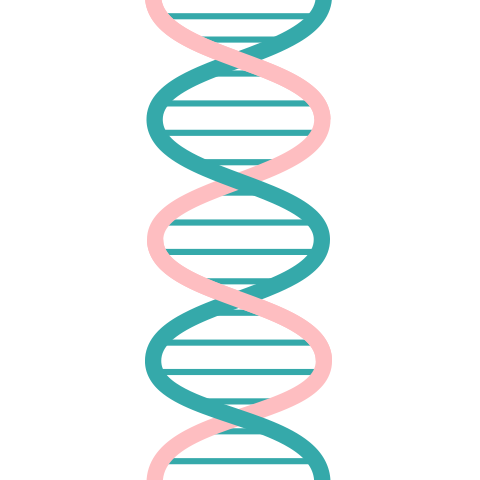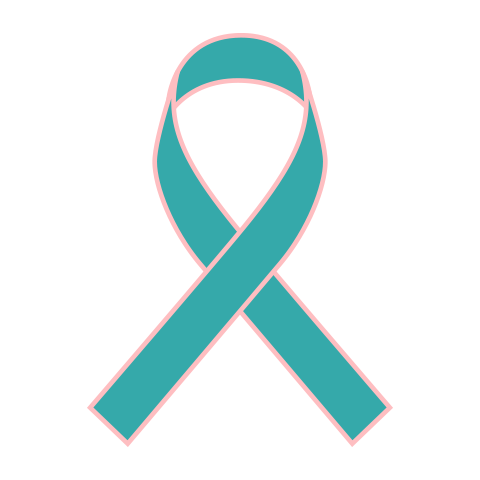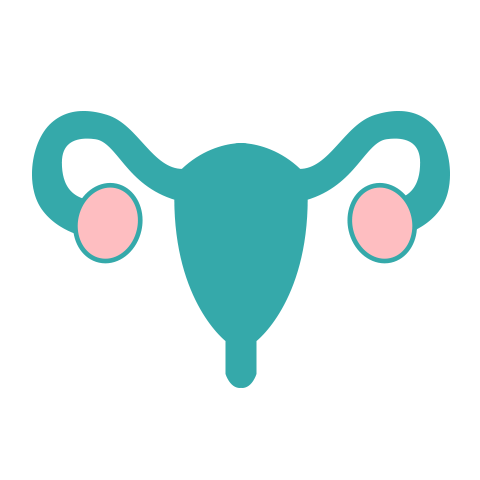Table of Contents
Causes | Symptoms | Diagnosis | Treatment | Complications
Menopause: An overview
Often, the first thing that comes to mind when someone hears the word “menopause” is hot flashes. And yes, those bothersome, sudden moments of feeling flushed are a key symptom of this time when a woman’s menstrual cycles end. But there’s a lot more to menopause—and you don’t have to dread it. “Women don’t have to suffer from the symptoms. There are options out there,” says Ann Cha, MD, a board-certified OB/GYN in Johns Creek, Georgia.
Stages of menopause
The terms perimenopause, menopause, and post-menopause all refer to the time surrounding the end of a woman’s reproductive years. They’re often used interchangeably, but they’re different.
The first stage is perimenopause, which typically occurs in a woman’s 40s (or sometimes in her 30s, which is considered to be premature menopause) when her ovaries gradually begin to produce less estrogen. The stage lasts an average of four years but can span anywhere from two to eight years. During this time, a woman may experience hot flashes, irregular periods, difficulty sleeping, night sweats, vaginal dryness, weight gain, and changes in sexual desire. The drop in estrogen also increases the risk of osteoporosis and heart disease.[1][2]
Once a woman has her final period, she has entered menopause. After 12 months or more without a cycle, she is considered postmenopausal. Every woman will go through menopause, either naturally or as a result of cancer treatments that affect the ovaries, or a surgery in which they’re removed.[5][6]
What are the causes and risk factors of menopause and early menopause?
Menopause typically occurs as a woman’s body naturally begins to produce less estrogen and progesterone. However, some women go through menopause early due to:
[3][4]
What are the symptoms of menopause?
Though the symptoms of menopause will vary from person to person. However, some of the most common side effects include:
Hot flashes and night sweats—also known as vasomotor symptoms (VMS)—are the cardinal symptoms of menopause. Hot flashes are characterized by a sudden, intense sensation of heat accompanied by sweating, chills and heart palpitations. Night sweats are hot flashes that occur during sleep. An estimated 60 to 80 percent of women experience VMS during menopausal transition. During menopause, your estrogen levels drop, creating an imbalance of chemicals in the hypothalamus, the region of your brain that regulates body temperature.
When your symptoms become difficult to contend with on your own, a doctor can help you manage and treat them, says women’s health expert Jennifer Wider, MD.[5]
How is menopause diagnosed?
Even before you begin to experience your first hot flash, “it is wise for all women to discuss perimenopause and menopause with their doctors, so they understand what to look for and what to expect,” Dr. Wider says. When it actually comes time, most often, women can tell they’re going through perimenopause—the time leading up to menopause. “Exhibiting symptoms of menopause is usually all it takes for a doctor to make the diagnosis,” Dr. Wider says. A woman is considered menopausal when she’s had her final period, and after more than a year without a period or spotting, she is considered postmenopausal.
While blood work isn’t necessary for a diagnosis, sometimes your healthcare provider may check for an increase in your levels of follicle-stimulating hormone (FSH), which increases in the years leading up to, and during, menopause. They may also check your levels of estrogen (estradiol), which decreases, to confirm menopause.[6] A doctor may also test your thyroid-stimulating hormone (TSH) levels to rule out thyroid disease; an underactive thyroid may cause symptoms similar to menopause.
When you see your doctor, come prepared to discuss the symptoms you’re having and any treatments you’ve tried, from home remedies to mind-body practices to dietary changes. Also, know your family health history. Some menopause treatments and herbal supplements come with health risks and may be best to avoid if, say, breast cancer runs in your family.[7]
How do you manage menopause?
“Menopause itself isn’t treated, but the symptoms can be managed and treated successfully,” Dr. Wider says. “Finding the right treatment depends on the symptoms and sometimes a little trial and error.”
Some women choose to forgo treatment, either because their symptoms are not severe enough to require it, or they go away on their own.[8] But others may choose medication, lifestyle changes, physical activity, natural and herbal remedies, or a combination thereof. “These options are not always easy,” Dr. Cha says. “For example, if you practice mindfulness or self-care, those aren’t as easy as taking a pill. But when you take care of yourself, you improve your long-term health.”
Here are some of the most common treatment options. Ask your doctor which options may be the best—and safest—ones for you:
Medications
- Menopausal hormone therapy (MHT): Taking estrogen or a combination of estrogen and progesterone via pill, vaginal insert, or skin patch helps stabilize your hormone levels, and can help alleviate hot flashes, vaginal dryness, night sweats, insomnia and other symptoms. However, hormone therapy isn’t for everyone. It comes with an increased risk of certain types of cancer, blood clots, heart attack, and stroke.[9]
- Low-dose antidepressants (selective serotonin reuptake inhibitors, or SSRIs): These medications may help reduce the frequency and severity of hot flashes while also helping with mood swings.[10]
- Estrogen cream: Applying topical estrogen to the vagina via a ring, tablet, or cream may help remedy vaginal dryness.[11]
Lifestyle changes
- Dressing in layers: Many women find this helps with hot flashes, as you can remove and add layers as your body temperature fluctuates.
- Prioritizing sleep: Good sleep hygiene may increase the chance of getting adequate, restful slumber even if you’re affected by night sweats.[12]
- Relaxation techniques: Deep breathing practices, meditation, and other mindfulness practices may help alleviate menopausal symptoms, such as anxiety, irritability, and depression.[13]
- Exercise regularly. Physical activity helps prevent weight gain associated with menopause, and protects against osteoporosis. It also can help improve your mood and alleviate anxiety. [13]
Natural remedies
- Supplements: Adding calcium and vitamin D to your daily nutrition can help keep your bones strong.[14] Another potential supplement is DHEA (dehydroepiandrosterone). This adaptogenic hormone helps promote production of female hormones while regulating cortisol, increasing metabolism, boosting libido, reducing vaginal dryness, etc.[15]
- Lubricant: Over-the-counter lube can help with vaginal dryness and make sex less painful.[16]
- Acupuncture: Research is inconclusive, but this ancient practice is believed to alleviate menopausal symptoms such as hot flashes, insomnia, and mood swings.[17, 18]
- Cognitive-behavioral therapy (CBT): Dr. Wider recommends therapy for any mood issues. Studies also notes that CBT may reduce depressive feelings and improve sleep.[19]
Remember: It’s important to discuss your personal and family health history with your doctor before choosing any treatment.
Complications of menopause
Estrogen isn’t only important for reproductive health. It also improves bloodflow, reduces inflammation, promotes bone growth, and maintains bladder health.[20][21][22] So the decrease in estrogen that occurs with menopause increases the risk of other health conditions such as:
Talk to your doctor about your options for monitoring and treating any conditions that arise due to menopause. “Monitoring cholesterol and blood pressure, as well as calcium and vitamin D levels, is vital in postmenopausal women,” Dr. Wider says. Some women may also need to take calcium and/or vitamin D supplements to support bone health. And of course, being active has numerous benefits for your health beyond helping to manage weight. [23]
Sources
[1] https://www.womenshealth.gov/menopause/menopause-basics#4
[2] https://www.womenshealth.gov/menopause/menopause-symptoms-and-relief ; https://www.mayoclinic.org/diseases-conditions/menopause/symptoms-causes/syc-20353397
[3] https://www.mayoclinic.org/diseases-conditions/menopause/symptoms-causes/syc-20353397 ; https://www.womenshealth.gov/menopause/early-or-premature-menopause
[4] https://academic.oup.com/aje/article/187/4/696/4080179; https://women.smokefree.gov/quit-smoking-women/what-women-should-know/smokings-impact-on-women
[5] https://www.nichd.nih.gov/health/topics/menopause/conditioninfo/symptoms ; https://www.mayoclinic.org/diseases-conditions/menopause/symptoms-causes/syc-20353397; https://medlineplus.gov/ency/article/000894.htm; https://www.menopause.org/for-women/menopause-faqs-hot-flashes; https://www.ncbi.nlm.nih.gov/books/NBK539827/; https://www.mayoclinic.org/diseases-conditions/hot-flashes/diagnosis-treatment/drc-20352795
[6] https://my.clevelandclinic.org/health/diseases/15224-menopause-perimenopause-and-postmenopause/diagnosis-and-tests
[7] https://www.medicalnewstoday.com/articles/menopause-supplements#supplements; https://pubmed.ncbi.nlm.nih.gov/23062258/ ; https://www.nia.nih.gov/health/hot-flashes-what-can-i-do
[8] https://www.womenshealth.gov/menopause/menopause-treatment; https://www.mayoclinic.org/diseases-conditions/menopause/diagnosis-treatment/drc-20353401
[9] https://www.womenshealth.gov/menopause/menopause-treatment ; https://www.mayoclinic.org/diseases-conditions/menopause/diagnosis-treatment/drc-20353401
[10] https://www.ncbi.nlm.nih.gov/pmc/articles/PMC5482277/
[11] https://www.mayoclinic.org/diseases-conditions/menopause/diagnosis-treatment/drc-20353401 ; https://www.womenshealth.gov/menopause/menopause-treatment#3
[12] https://www.nia.nih.gov/health/sleep-problems-and-menopause-what-can-i-do
[13] https://newsnetwork.mayoclinic.org/discussion/mindfulness-may-ease-menopausal-symptoms/ ; https://www.nia.nih.gov/health/hot-flashes-what-can-i-do ; https://www.mayoclinic.org/diseases-conditions/menopause/diagnosis-treatment/drc-20353401; https://www.mayoclinic.org/healthy-lifestyle/womens-health/in-depth/fitness-tips-for-menopause/art-20044602
[14]https://ods.od.nih.gov/factsheets/VitaminD-HealthProfessional/
[15] https://www.mayoclinic.org/drugs-supplements-dhea/art-20364199
[16] https://www.mayoclinic.org/diseases-conditions/menopause/diagnosis-treatment/drc-20353401 ; https://www.womenshealth.gov/menopause/menopause-treatment ; https://www.hormone.org/diseases-and-conditions/menopause/menopause-treatment/bioidentical-hormones ; https://nccih.nih.gov/health/blackcohosh/ataglance.htm
[17] https://nccih.nih.gov/health/menopause/menopausesymptoms#hed3 ; https://www.hormone.org/diseases-and-conditions/menopause/menopause-treatment/alternative-medicine-for-menopause-treatment ; https://www.mayoclinic.org/diseases-conditions/menopause/diagnosis-treatment/drc-20353401
[18] https://www.ncbi.nlm.nih.gov/pubmed/19169169 ; https://www.ajog.org/article/S0002-9378(13)02015-2/fulltext#sec3 ; https://nccih.nih.gov/health/menopause/menopausesymptoms#hed3 ; https://www.mayoclinic.org/diseases-conditions/menopause/diagnosis-treatment/drc-20353401
[19] https://www.ncbi.nlm.nih.gov/pubmed/24149919 ; https://journals.lww.com/menopausejournal/Citation/2019/09000/Cognitive_behavior_therapy_for_menopausal_symptoms.6.aspx ; https://www.bmj.com/content/351/bmj.h5746/rr-0; https://pubmed.ncbi.nlm.nih.gov/35881942/; https://www.nia.nih.gov/news/research-explores-impact-menopause-womens-health-and-aging
[20] https://my.clevelandclinic.org/health/articles/16979-estrogen–hormones
[21]https://pubmed.ncbi.nlm.nih.gov/35634466/; https://www.ncbi.nlm.nih.gov/pmc/articles/PMC9133497/
[22] https://www.nia.nih.gov/news/research-explores-impact-menopause-womens-health-and-aging
[23] https://www.womenshealth.gov/menopause/menopause-and-your-health/#4 ; https://www.mayoclinic.org/diseases-conditions/menopause/symptoms-causes/syc-20353397
Like what you just read? You’ll love our magazine! Go here to subscribe. Don’t miss a thing by downloading Apple News here and following Prevention. Oh, and we’re on Instagram too.
Brittany Risher Englert is a writer, editor, and digital strategist specializing in health and lifestyle content. For more than a decade she’s worked with major brands, including Men’s Health, SELF, and Women’s Health. To stay sane from working too hard, she turns to yoga, strength training, meditation.
Credit: Source link








